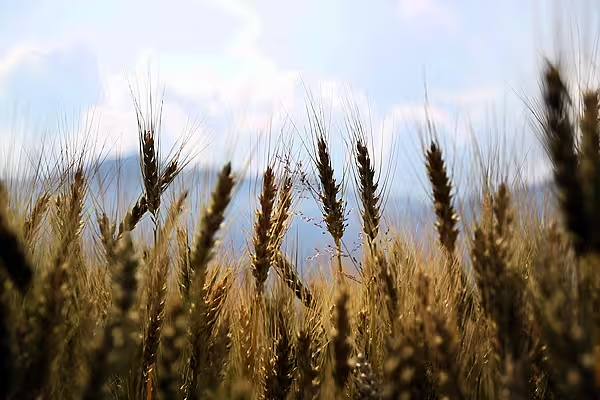Ukraine and Russia may have less milling wheat than previously expected this year after rain during harvesting hurt the quality of crops, potentially accelerating any curbs on exports from the Black Sea exporters, traders and analysts said.
Kiev and Moscow have said there is no need to impose restrictions on wheat exports for now, but their agriculture ministries are closely monitoring activity of the main exporters for the 2018/19 marketing season.
Export Costs
There are fears that strong milling wheat exports may help drive up the cost of bread in both countries where weak domestic currencies and poor crops have already inflated food prices.
The rouble is near its lowest since April 2016 against the dollar, while Ukraine's hryvnia is at its weakest since January.
"Undoubtedly, both countries have grounds for controlling actual grain shipments," Yelizaveta Malyshko at UkrAgroConsult said.
The ministries' meetings with exporters came under the spotlight in August, causing a jump in global wheat prices as some traders expect curbs on grain exports in some form later in the season, which started on July 1.
Traders said in August exports would speed up in September-December as traders bet on restrictions sometime after December.
Tightening Procedures
"There are fears (of restricting exports) through tightening of the various procedures - like all kinds of inspections," a Ukraine-focused trader said. "This scenario is most possible. It could be if the milling wheat exports reach 6 million tonnes before the New Year."
Ukraine's agriculture ministry has no immediate plan to review a memorandum agreed with traders this month allowing for the export of 16 million tonnes of wheat, including 8 million tonnes of milling wheat, this season, an official said this week.
Russia could consider export curbs once exports reach 30 million tonnes of grain, including 25 million tonnes of wheat, in the 2018/19 season that began on July 1, traders have said. The agriculture ministry has denied export limits were under discussion and made no mention of milling wheat.
Russia and Ukraine have already exported 6.4 million tonnes and 2.6 million tonnes of wheat, respectively, this season. Exports have been boosted by high global prices, weak local currencies and an early harvest.
Initial crop tests in Russia show a decline in the share of milling wheat by 2.5%age points from a year ago to 65.2%. However, the share of milling wheat is significantly lower in some regions - 44% in part of Russia's Central region - and the sourcing of wheat may become difficult for exporters unless Siberia shows a good quality crop in the coming weeks, SovEcon consultancy said this week.
Any global price spike could spark exports and cause the Russian government to take counter measures if it sees a sharp domestic market move, a Russian industry source said.
Political Manoeuvres
Domestic politics could also play a role as Ukraine's presidential election is scheduled for the end of March.
"I do not think the government will take any official step to limit sales in coming months, but if local wheat prices jump - they will do all their best to curb sales because no one wants to be accused of raising the price of bread on the eve of elections," one trader said.
Ukraine's agriculture ministry is unlikely to impose any direct restrictions as it would draw it into a row with exporters, another trader said. "But it does not rule out the potential use of different unofficial methods for slowing exports if something goes wrong."
Several traders expect Ukraine's milling wheat limit to be downgraded to 6-7 million tonnes from the current 8 million.
The share of milling wheat in Ukraine's crop may fall significantly from a year ago to about 40%, according to a senior agriculture official. The ministry has said food wheat accounted for around 60%.
News by Reuters, edited by ESM. Click subscribe to sign up to ESM: European Supermarket Magazine.














